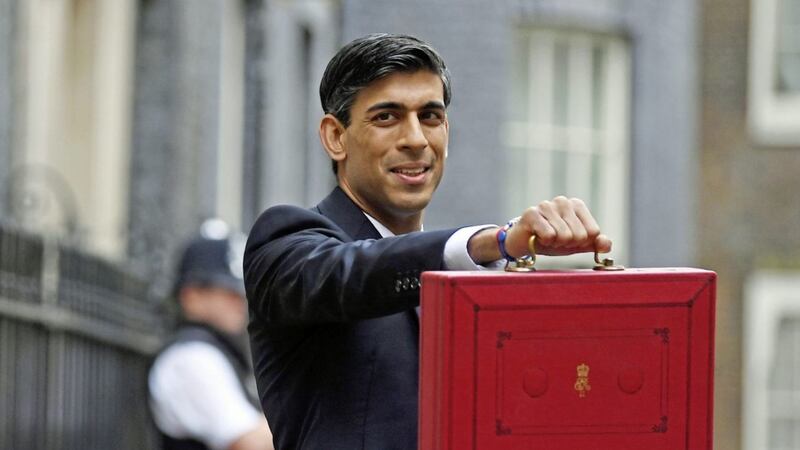TOMORROW'S Budget from UK Chancellor Rishi Sunak is set to be one of the more interesting in recent years.
I know this because my tax colleagues are excited. That takes some doing so, for me, there is no better barometer that this budget could be a big one.
We have all become used to the Chancellor’s regular announcements over the past year as he outlined various support measures aimed at protecting the economy from the worst impacts of the pandemic.
Tomorrow’s budget, only his second actual budget, is a bigger affair than his regular announcements and comes just short of a year since the last one. It is the first major fiscal event since Brexit and since the onset of the pandemic lockdowns. What might it bring?
There have been some clues over the past 12 months as to the type of moves the Chancellor wants to make. Corporation tax is an area that has come under sharper focus and could creep up to 20 per cent. It would be no surprise either to see a move to tax the online sellers that have done so well during the past year.
Despite the largesse in supports that this Chancellor has presided over, he is not averse to trimming budgets.
The spending review last autumn saw non-Covid departmental budgets reduced by £10 billion.
He is also a committed proponent of balanced budgets, referring to a ‘”sacred duty” to ensure sustainable public finances. So, do we expect a bout of austerity and revenue raising?
The economy is poised in a precarious position. While hope for a strong recovery has emerged through the development of Covid-19 vaccines, much of the economy remains paralysed by lockdown restrictions.
The economic prospects for the year ahead depend on how fast the vaccine continues to roll out and how effectively that leads to lifting restrictions.
With the first quarter now expected to show a sharp contraction in activity, the economic outlook for 2021 is somewhat dampened.
The Bank of England now expects growth of five per cent in 2021, compared with the 7.5 per cent it was expecting in earlier assessments. That said, hope now appears to be winning out.
Regardless of the fact the Prime Minister was referring only to England in his announcement on lifting restrictions last week, people seem to be fixing June 21 in mind as the great (and final) release from lockdown.
With so much of the economy currently unable to function, the Chancellor is faced with quite a list of options around the extent to which he keeps the Covid supports flowing, drives the economic recovery with targeted incentives or starts to raise revenue.
When it comes to the national debt, one of the questions I get asked most often these days is how we are going to pay for all the Covid supports. Now the end of the pandemic restrictions is in sight, I have no doubt the Chancellor will start laying the groundwork for paying down the borrowing but he doesn’t need to panic here, or rush.
Does he even need to worry?
We read lots of media stories about the national credit card being maxed out or that there is no money left. The analogy of government finances being like households or a corporate entity is misplaced.
The UK national finances are nothing like our own in our households.
By virtue of having its own currency and owning the Bank of England, the UK government can’t max out a credit card or run out of money.
The Bank of England can fire up the printer, or more appropriately, click a few keys on a keyboard and create money. This has been abundantly clear during the pandemic.
Government borrowing has risen sharply over the past year as the bill for the ‘whatever it takes’ approach from the Chancellor mounted up.
There is about £250bn in Covid related expenditure when all the Chancellor’s supports are totted up.
The Bank of England has bought up about 80 per cent of all the UK debt issued in this past year. The rest of the debt has been sold at interest rates that are at historically low levels.
The debt may be large but the burden is not. Just to be clear, essentially the Government owes billions to itself.
This surely should provide the Chancellor with the confidence to go further on spending to ensure the economy roars back.
Arguably the best way to balance the books is to grow the economy. Now is a time for the government to unleash the infrastructure revolution it promised and implement a range of initiatives that get people back to employment. As Keynes noted, “Look after the unemployment, and the Budget will look after itself.”
Tomorrow, amidst the various measures that get the headlines, like fuel duties and the tax on wine, beer and spirits we will get a clearer idea of what this Chancellor’s approach to balancing the books is. As far as paying down debt goes, there’s no rush Rishi.
Andrew Webb is chief economist at Grant Thornton Ireland








